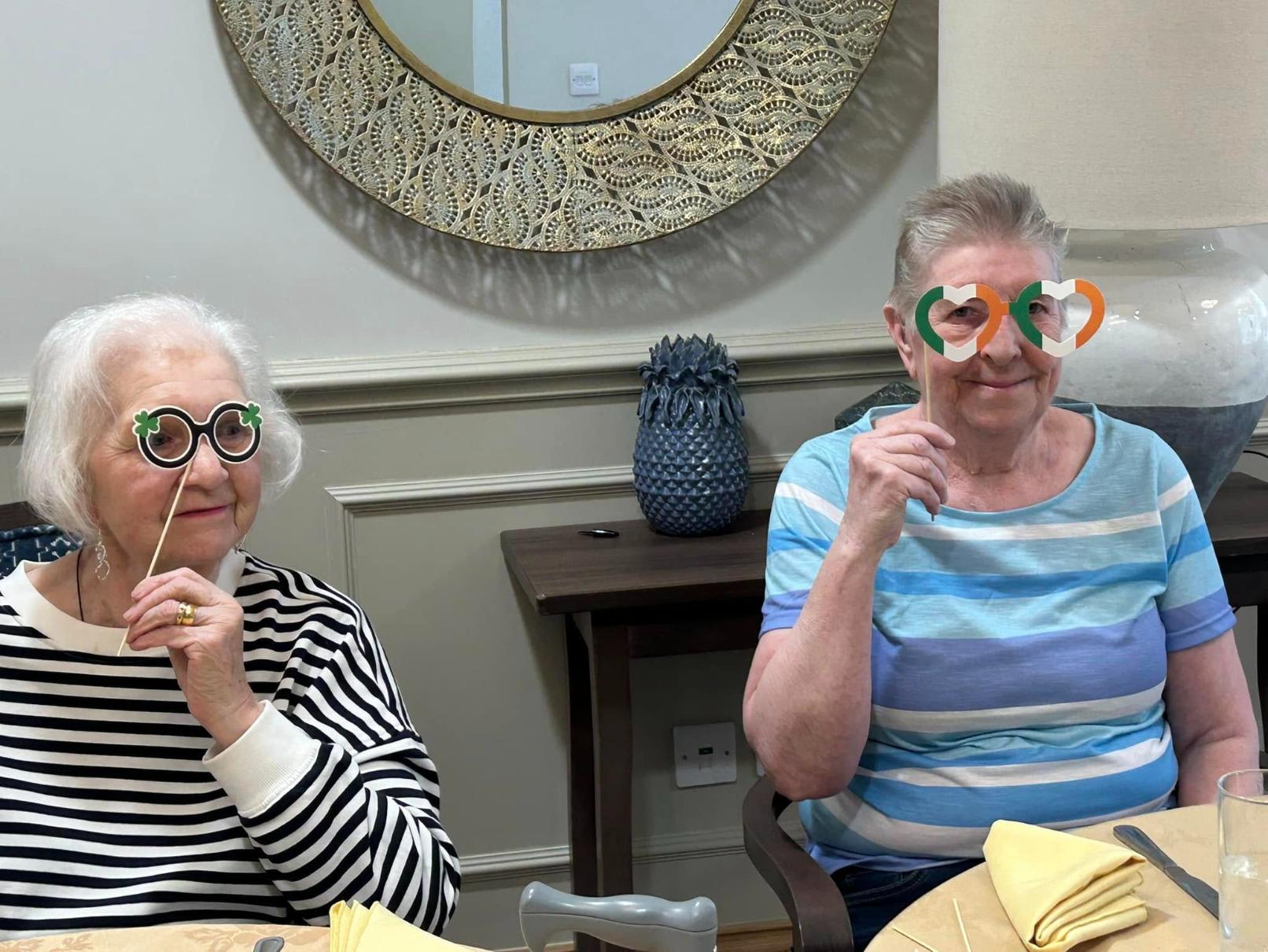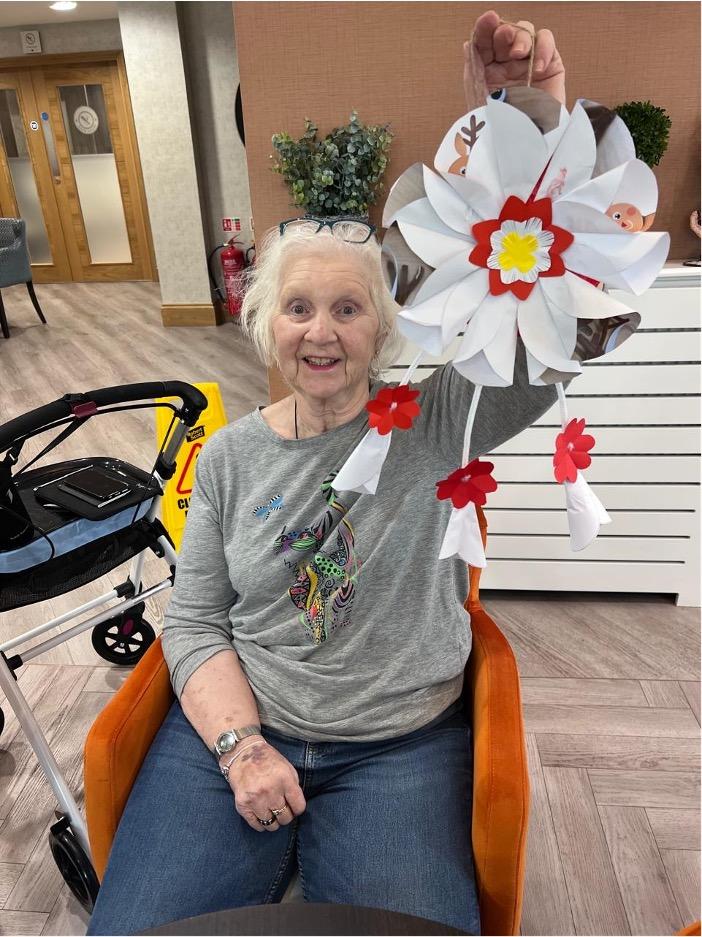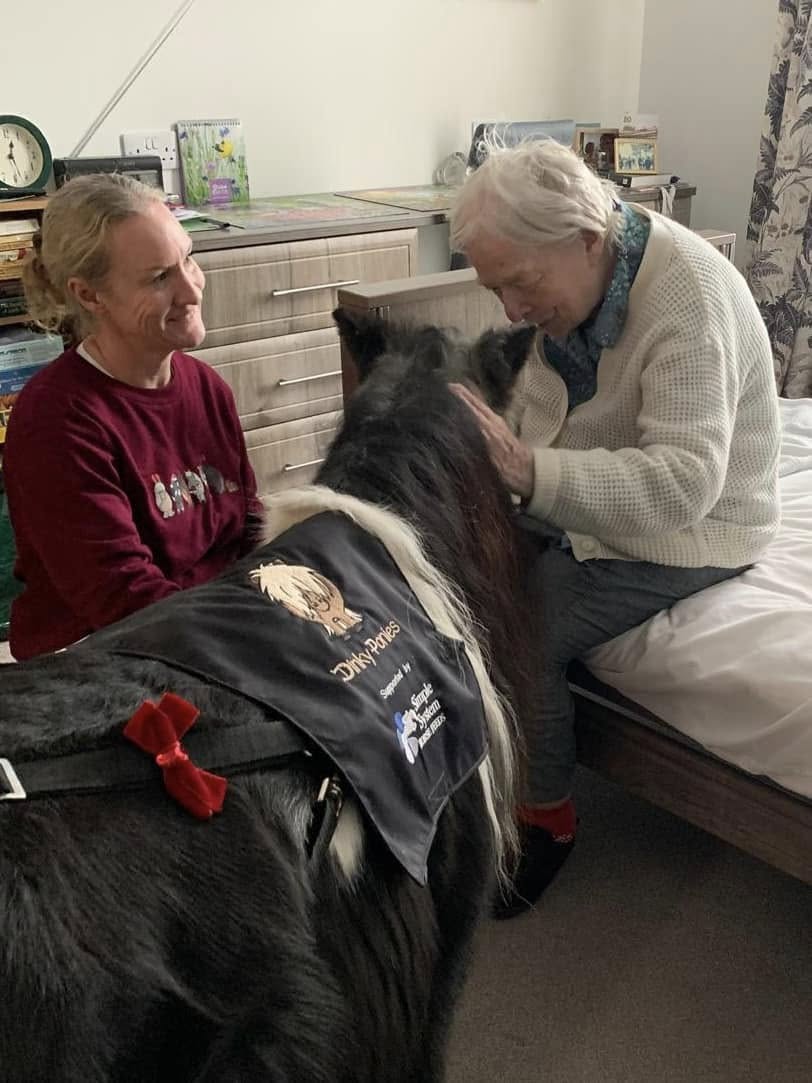The Importance of Good Nutrition in Care Homes

As we age, our eating habits go through many changes. Our appetites can shift, tastes may alter, and health conditions often influence the types of food we can enjoy. This makes nutrition especially important in later life within the care sector, where older people rely on dedicated teams to support their well-being every day. For people residing in a care home, food and nutrition isn’t just about becoming full – it’s about staying well, comfortable and connected to their sense of self.
In both nursing and residential homes, meals play a key role in the rhythm of daily life. They provide both nourishment and enjoyment, and they’re one of the key ways to support residents emotionally, physically and socially. Whether they are people living with dementia, complex care needs, or just need some additional support with daily tasks, a thoughtfully designed care home menu can make a huge difference to someone’s quality of life.
Meeting Nutritional Needs with Care and Compassion
Good nutrition in care homes is about far more than reaching calorie counts or serving standard meals. It means catering to a wide range of nutritional needs, personal preferences and medical conditions. Some residents will have specific dietary requirements such as gluten-free options, vegetarian dishes or softer finger foods. Others may simply want to enjoy the familiar comfort of their favourite meals, whether that’s a full cooked breakfast or a slice of homemade cake with their tea.
This balance between nutritional value and individual choice is vital. The best care homes take the time to understand each person’s specific dietary needs and offer a diverse range of dishes at every mealtime. Whether it is breakfast, dinner or anything in between, variety helps ensure that residents not only eat well but enjoy doing so too.
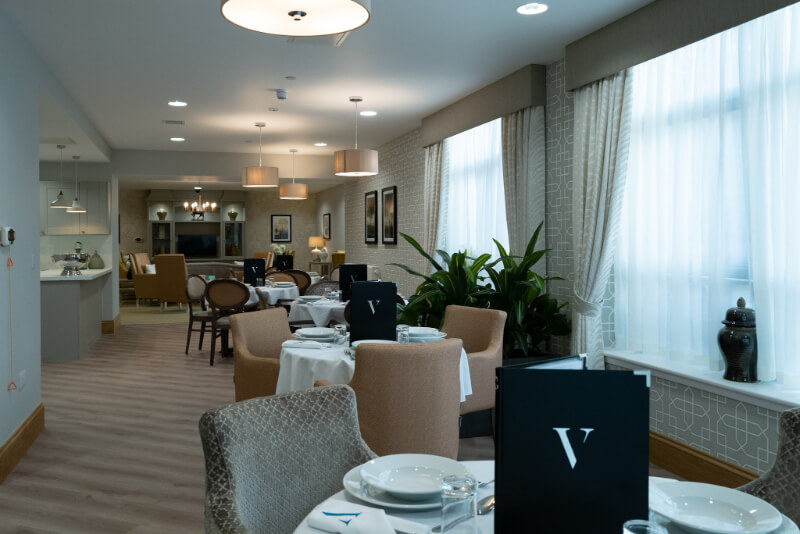
The Role of Food in Residents' Well-Being
Meal times aren't just an opportunity for residents to eat delicious food; it is also a chance to connect with like-minded individuals in a warm and comfortable environment. It’s often during shared meals that friendships are formed, routines are re-established, and the overall sense of community is strengthened.
Nutritious meals help to maintain strength, boost energy, and support the immune system. For older people, regular access to balanced meals and healthy snacks can reduce the risk of dehydration, help manage long-term conditions, and improve general well-being. Chefs and kitchen teams have an important part to play in this. Their understanding of nutrition, alongside professional training and a genuine commitment to first-class care, is key to delivering food that’s both tasty and tailored.
Creating Menus That Reflect Each Individual
Menus in care homes should never be one-size-fits-all. Every resident arrives with a lifetime of habits, cultural traditions and personal preferences that should be honoured and respected. That’s why involving residents in the development of menus is so important. Not only does it help ensure that meals are enjoyed, but it also gives people a sense of independence and choice in their daily lives.
Seasonal ingredients are often used to create dishes that are fresh, varied and in tune with the time of year. Whether it’s comforting stews and vegetables in winter or afternoon tea and fruit-based desserts in summer, rotating menus help to keep things interesting while ensuring meals remain nutritious and full of flavour. Popular staples like a Ploughman's supper, roast dinners, and fish and chips often hold a special place in people’s hearts and can be part of a wider approach to nourishing both body and soul.
Supporting Dignity and Independence Through Food
In some cases, residents may face challenges around eating and drinking. This could include reduced appetite, difficulty swallowing or cognitive conditions such as dementia and will lead to residents requiring assistance from carers. Finger foods and well-prepared snacks can allow individuals to eat at the times convenient to them and with greater independence, and for those with more complex needs, specialist nutritional guidance and thoughtful menu planning ensure that dignity and comfort are always upheld.
The environment where food is served is equally important. Some residents prefer the companionship of communal dining rooms, while others may wish to eat in the privacy of their rooms. Having options allows people to feel relaxed, safe and respected – and when residents feel at ease, they’re more likely to enjoy their meals and eat well.
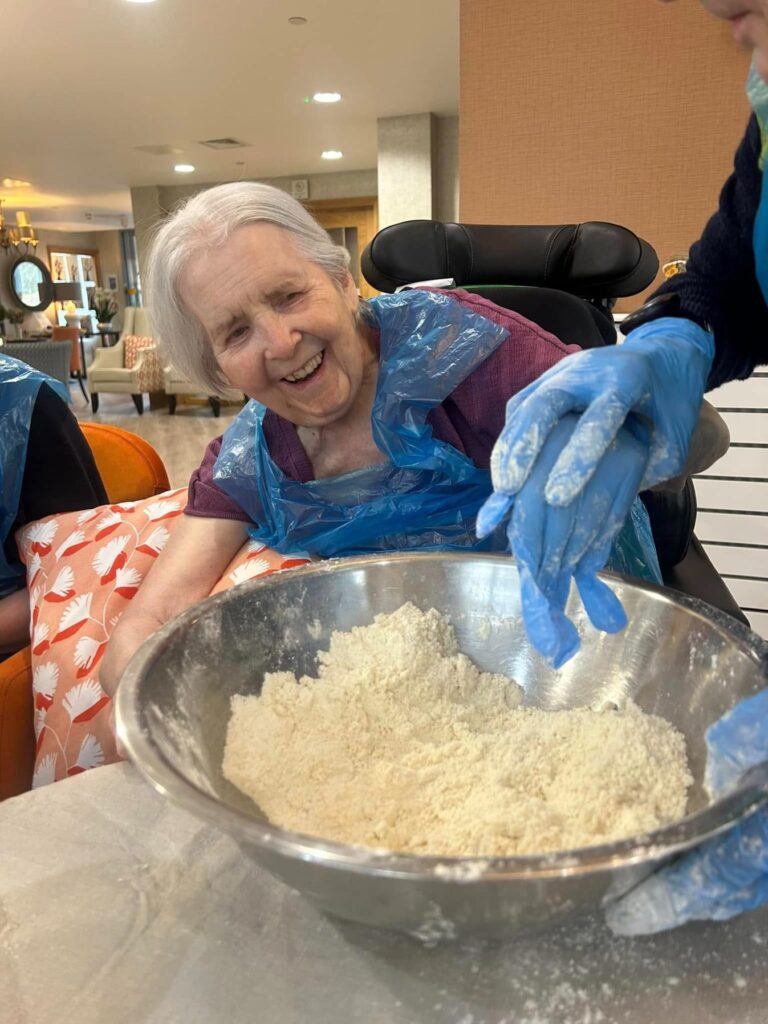
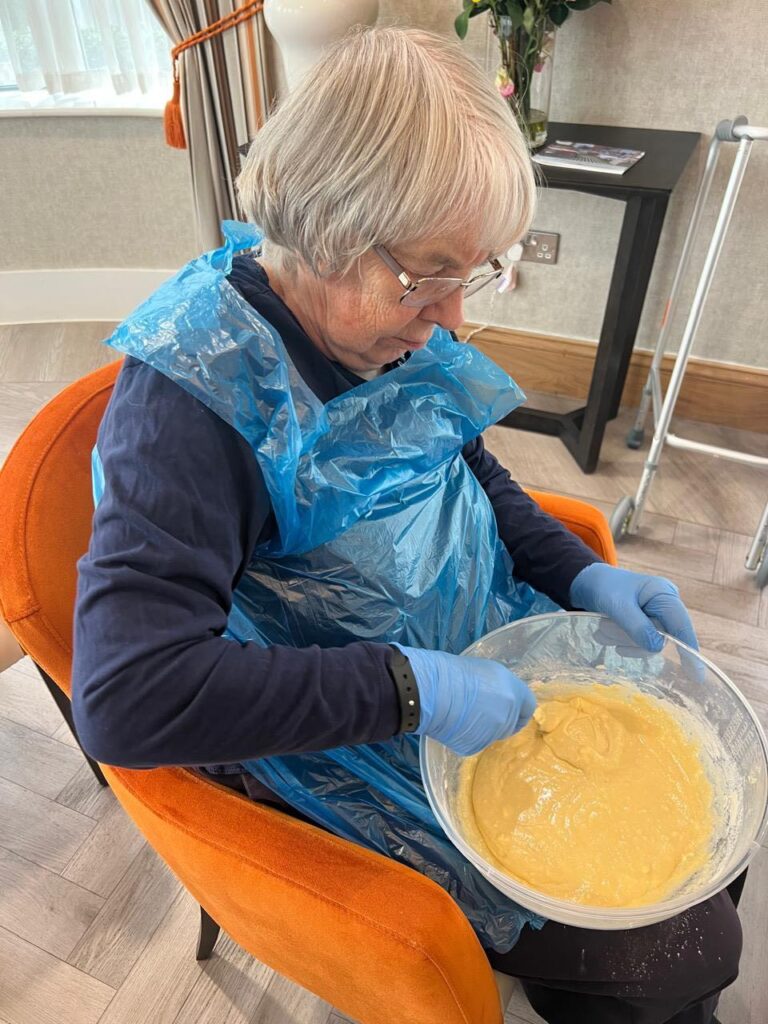
Catering to Various Dietary Needs
Care home food must strike a careful balance between safety, nutrition and enjoyment. This means having chefs who understand a wide variety of dietary requirements and who can adapt recipes without compromising on flavour or presentation. Whether it's gluten-free baking, dairy-free dishes, or vegetarian meals, the ability to cater thoughtfully and creatively is essential.
Ongoing training for team members is also essential when catering to various needs. When kitchen teams are given ongoing education and support, they’re better equipped to provide food that meets both nutritional standards and personal preferences. That might mean offering lighter bites for those with smaller appetites or making sure there are always nourishing drinks and snacks available throughout the day.
Celebrating Culture by Combining Activities and Mealtimes
One of the common ways activities are integrated into mealtimes is by marking national days, cultural events and seasonal festivities through food. Whether it’s serving pancakes on Shrove Tuesday, dishing up curries on Diwali, or enjoying strawberries and cream during Wimbledon, adapting the menu to reflect the calendar helps to keep mealtimes engaging and joyful. These special occasions allow residents to enjoy their favourite familiar meals while also having the chance to try something different. A themed lunch or dinner can spark conversation and reminiscence while providing a refreshing change from the usual routine.
By embracing cultural celebrations and incorporating them into the dining experience, it allows residents to keep in touch with their past and enjoy a sense of belonging. It’s a lovely way to prompt memories, share traditions with others, and make food feel festive and meaningful.
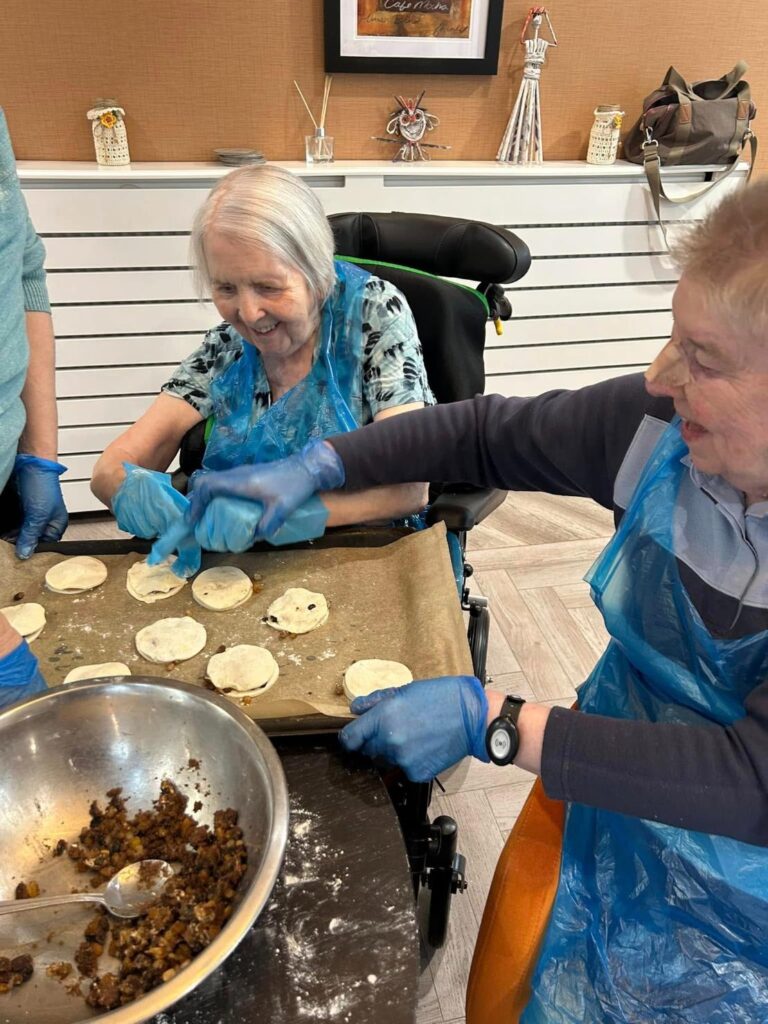
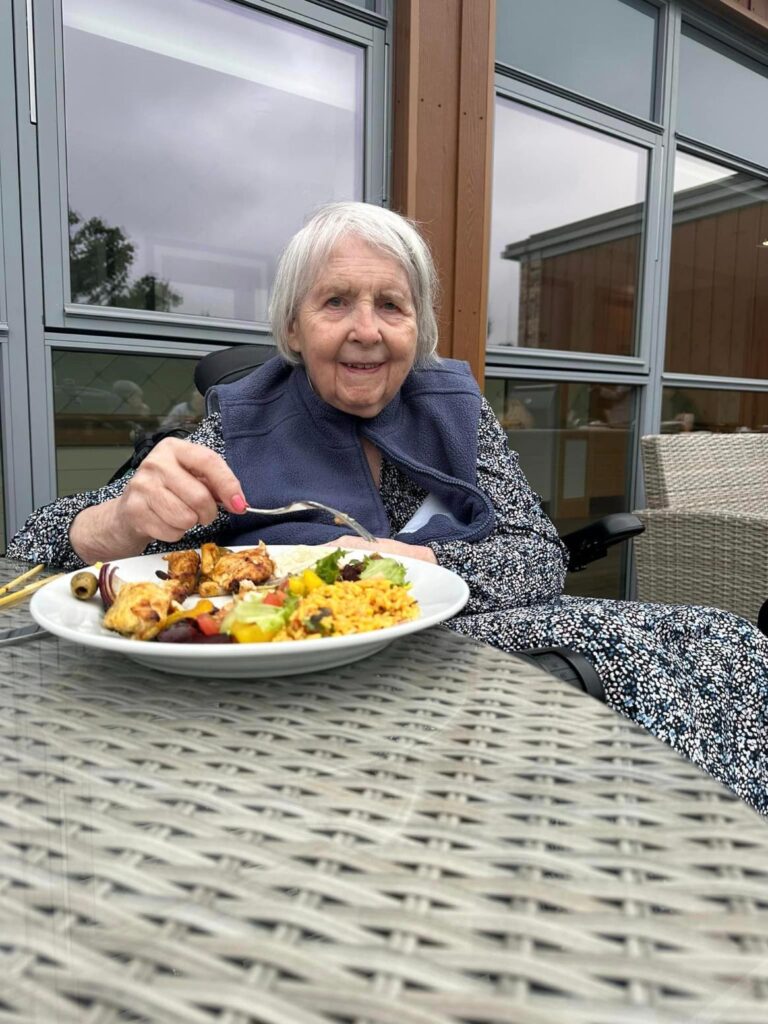
Valerian Court Care Home - Where Dining is at the Heart of Care
At Valerian Court Care Home, we prioritise the nutritional needs of our residents. With a professional in-house chef and dedicated kitchen team, every meal is created with care. From cooked breakfasts and a 3 course lunch to light dinners and homemade cakes, residents can enjoy a wide variety of freshly prepared options every day.
Our menus change with the seasons and are developed in collaboration with the residents themselves. Every person is encouraged to give their opinions on our menu by crossing off any unwanted options, which ensures their meals are not only nutritious but truly enjoyable. We take pride in maintaining routine through our dining offerings, including Fish and Chips on a Friday and a Roast Dinner on a Sunday, and always combine culture with food on national events. Whether residents want to dine with friends in our communal spaces, enjoy the sun and views from the rooftop garden, or have a peaceful meal in their luxury bedrooms, the choice is always theirs.
We also understand the importance of having small bites to enjoy between mealtimes. Snacks, fruit and drinks are also always available for those who prefer to graze, and the weekly baking club is a resident favourite. It brings our residents together through shared memories, and the result is some delicious treats!
At Valerian Court, our commitment to great care includes a genuine passion for great food. Whether you require Residential Care, Nursing Care, Dementia Care, Respite Care or Palliative Care, we are committed to providing you with the finest quality of life. To find out more about our care home in Didcot, book a tour! We would love to meet you and answer any questions you may have.

